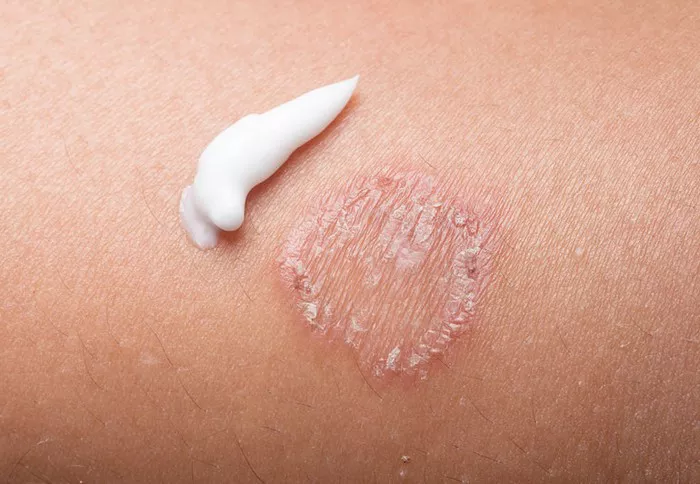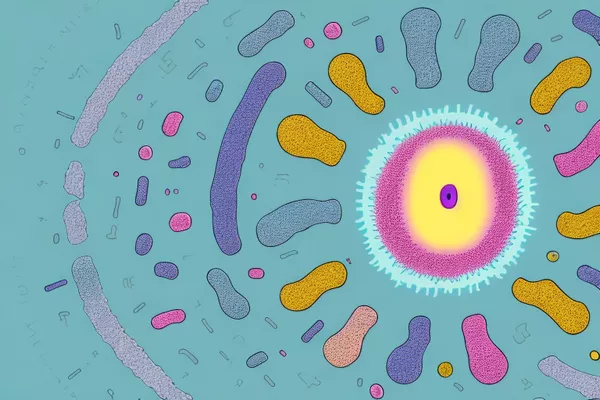Ringworm is a common fungal infection that affects the skin, hair, and nails. It is caused by a group of fungi known as dermatophytes. Despite its name, ringworm is not caused by a worm, but by a fungal infection that forms circular or ring-like patches on the skin. While ringworm is typically a mild and easily treatable condition, many people may wonder if it can lead to something more serious, such as cancer. In this article, we will explore the relationship between ringworm and cancer, clarify any potential risks, and provide you with important information about both conditions.
What Is Ringworm?
Ringworm is a superficial fungal infection of the skin, also known as tinea. It can affect various parts of the body, including the scalp, feet, nails, and groin. The infection usually causes red, itchy, circular patches with raised edges, often with healthy skin in the center. Ringworm is highly contagious and can spread through direct contact with infected skin or contaminated surfaces, such as towels, clothing, and furniture.
Common types of ringworm include:
- Tinea corporis (affects the body)
- Tinea capitis (affects the scalp)
- Tinea pedis (athlete’s foot)
- Tinea cruris (jock itch)
- Tinea unguium (nail fungus)
Ringworm can affect anyone, but it is more common in people with weakened immune systems, those who wear tight or wet clothing for long periods, and athletes involved in contact sports.
Ringworm and Its Symptoms
The symptoms of ringworm can vary depending on the area of the body affected. Common symptoms include:
- Red, circular, itchy rashes
- Raised or scaly edges of the rash
- Blister-like formations in severe cases
- Hair loss if the scalp is affected
- Cracking, peeling, or flaking skin
Although ringworm itself is not usually dangerous, it can cause discomfort and irritation. If left untreated, it may spread to other parts of the body or to other people.
Ringworm and Cancer: Is There a Connection?
The question of whether ringworm can cause cancer is one that requires careful consideration. To understand if there is a potential link between ringworm and cancer, it’s important to understand both conditions and how they work.
Understanding Cancer
Cancer is a disease that occurs when abnormal cells in the body begin to grow uncontrollably. These cells can form tumors and spread to other parts of the body. Cancer can be caused by a variety of factors, including genetic mutations, environmental exposures (like tobacco smoke or radiation), and infections. It is a complex disease that often requires medical treatment such as surgery, chemotherapy, or radiation.
Most cancers are classified based on the organ or tissue where they originate, such as lung cancer, breast cancer, skin cancer, and so on. Cancer is often associated with long-term health problems, and the treatment process can be aggressive and prolonged.
Fungal Infections and Cancer
Fungal infections, like ringworm, are common, but they do not typically cause cancer. However, some types of fungi have been associated with certain types of cancer in rare cases. For example, some fungal species produce toxins called mycotoxins, which have been linked to the development of liver cancer and other types of cancer in animals. But these types of fungi are not the same as the dermatophytes responsible for causing ringworm.
In other words, while certain fungi can cause cancer in animals under certain conditions, the fungi that cause ringworm do not have the same effect. Ringworm is generally considered a benign, superficial infection that does not progress to cancer.
Can a Ringworm Infection Lead to Other Serious Health Issues?
While ringworm itself does not cause cancer, there are some situations in which a fungal infection like ringworm can lead to more serious health problems, especially in people with weakened immune systems. For example:
Secondary Skin Infections: If a ringworm infection is left untreated, it may cause secondary bacterial infections. These infections can sometimes lead to more severe complications, but they are not directly linked to cancer.
Chronic Fungal Infections: In rare cases, some individuals with weakened immune systems, such as those with HIV/AIDS, may develop chronic or persistent fungal infections. While these infections do not directly cause cancer, people with compromised immune systems are at a higher risk for certain types of cancer due to the overall weakening of their body’s ability to fight off diseases.
Increased Risk of Skin Cancer for People with Severe Skin Conditions: If someone has a severe form of a skin condition that causes chronic inflammation or irritation, such as eczema or psoriasis, there may be an increased risk of developing skin cancer over time. However, this risk is not specifically related to ringworm, but rather to other chronic skin conditions that affect the skin’s ability to heal properly.
Fungal Infections and Immunocompromised Patients: Certain fungal infections can be more dangerous for individuals with compromised immune systems. These individuals may be at greater risk for developing more severe infections, which can sometimes spread internally. While these conditions are serious, they do not directly lead to cancer.
How Does Ringworm Affect People with Weakened Immune Systems?
People with weakened immune systems, such as those undergoing chemotherapy, organ transplant recipients, or individuals with autoimmune disorders, may be more susceptible to infections, including fungal infections like ringworm. In these individuals, a fungal infection might be harder to treat, potentially leading to complications. However, even in these cases, there is no evidence that ringworm itself leads to cancer.
What Are the Risks of Not Treating Ringworm?
Although ringworm does not cause cancer, it is important to treat the infection as soon as possible to avoid complications. Left untreated, ringworm can spread to other parts of the body and other people. In some cases, it can become more difficult to treat, especially if it spreads to the nails or scalp.
The primary risk of untreated ringworm is the potential for skin infections or more severe fungal infections. In rare cases, untreated ringworm on the scalp or nails can cause permanent hair loss or nail damage. These complications, while serious, are not cancerous.
Treatment for Ringworm
The good news is that ringworm is treatable with antifungal medications. These treatments can come in the form of topical creams, oral medications, or shampoos, depending on the location and severity of the infection. Common antifungal medications include:
Topical Antifungal Creams: These are applied directly to the affected area and can treat most cases of ringworm.
Oral Antifungal Medications: In more severe or widespread cases, doctors may prescribe oral antifungal medications.
Antifungal Shampoos: For ringworm on the scalp, special antifungal shampoos can help treat the infection.
In most cases, with prompt treatment, ringworm can be cured without complications.
Conclusion
In summary, ringworm is a common fungal infection that does not cause cancer. While certain fungi have been linked to cancer in rare cases, the dermatophytes that cause ringworm do not carry this risk. Ringworm is generally a mild condition that can be easily treated with antifungal medications. However, people with weakened immune systems may experience more severe infections, but even in these cases, cancer is not a direct concern. The key is to treat ringworm early and take precautions to prevent its spread. If you suspect you have ringworm, consult a healthcare professional to receive appropriate treatment and care.
Related topics


























